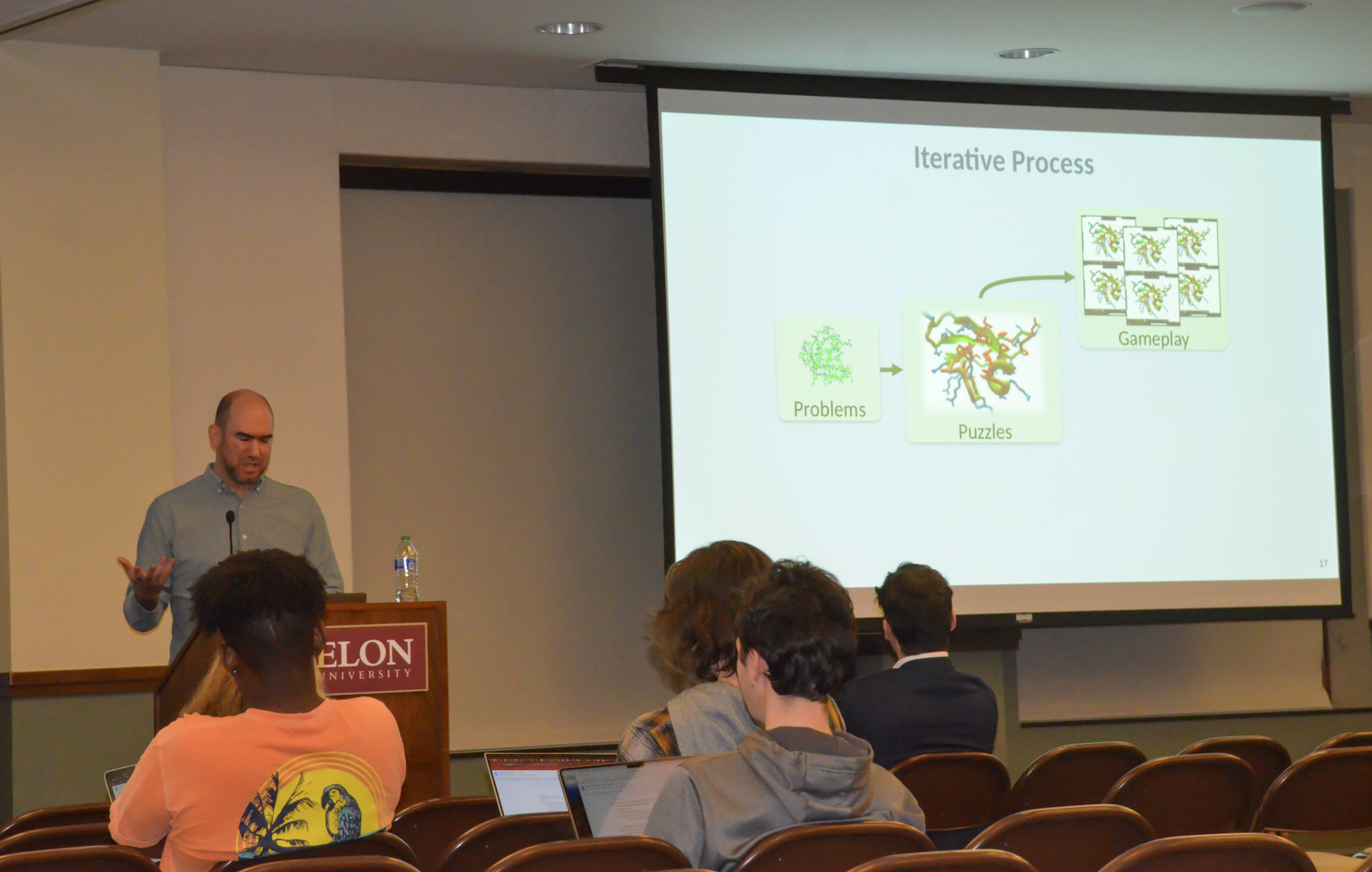Scientific discovery games could be the stepping stone to creating medical breakthroughs, according to Cooper, an associate professor of computer science at Northeastern University.
Many think of video games as just toys — something to play with, sometimes too often and for too long. But mechanisms for solving real-world problems? Not so much.
However, Associate Professor Seth Cooper from Northeastern University’s Khoury College of Computer Sciences is helping shift those perceptions.
During a lecture at Elon on Monday, Nov. 6 as part of the Voices of Discovery series, Cooper discussed video games and their potential for scientific discoveries. More specifically, he discussed the game he co-created, “Foldit”, which has players participate in an online, 3D puzzle game for protein folding. Players predict the protein’s structure and high scorers in the past have assisted in biological breakthroughs, such as the correct structure of a monkey protease involved in determining simian AIDS.
“His work represents the epitome of interdisciplinary engagement, merging the lines between entertainment, science, and social contribution,” said Mohammed Al Fadaam ’23, president of Elon’s Game Design Club.
The idea for the game began with the simple visualization of how the structure of amino acids fold into proteins. Cooper thought people could eventually become good at predicting these structures if they were given the chance to solve them through interactive platforms, like a 3D puzzle.
He was right.
The game’s main goal is for the player to get the highest score, and it is designed as a leaderboard competition. This ensures healthy competition among players, mobilizing them closer to achieving a potential breakthrough for the scientific community.
When players of the game made a breakthrough in determining the correct structure of a monkey protease involved in determining simian AIDS, it ended a hunt for a solution that had lasted for years by experimental collaborators.
“In just a few weeks, they [the Foldit players] were able to come up with a structure that was accurate enough to be confirmed by experimental data,” Cooper explained. “This was sort of our early success of the Foldit players, basically being able to be in a community of players, working together to solve this problem that was very difficult to solve for several years.”
Cooper’s ability to turn serious scientific questions into an opportunity for citizen science provides a new perspective in thinking about medical discoveries. With this mindset, anyone can contribute to scientific innovation, and we can start to believe that through community, anything is possible, Cooper explained.
Visit Cooper’s TedMed page for more information and videos on Foldit.



